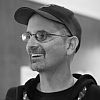
I am a survivor. I've survived cancer, multiple cases of pneumonia, H1N1, blood clots in my lungs, a stroke, and Game 6 of the 2002 World Series. These, along with dozens of minor triumphs over adversity, define my life. But they have left me rather dependent on the medical profession. I need regular medical care, and several specialists. (The 2002 Series just left me in need of a good bartender.) People like me, with multiple chronic problems that prevent us from working, are one of the reasons programs like Medicare and Medicaid (MediCal in California) were created. I can't work, and SSDI doesn't even come close to paying the bills. So the government in its wisdom created programs for low- or no-cost medical care.
The problem is that the American model of health care is centered around profit, not health care. Oh, the people on the front lines (doctors, nurses, therapists, etc.) are dedicated to making you well and keeping you that way, but they are at the mercy of the large corporations who run the hospitals, and the insurers who seek to maximize shareholder value over paying out claims. There are a lot of doctors who refuse patients on Medicare. They simply don't make money on them. Likewise, changes in plans can result in you losing a favorite doctor. This happened to me once already; I lost access to the man who literally saved my life, Dr. George Waltuch, who had diagnosed my cancer and seen me through chemotherapy, because Stanford decided not to take my insurance anymore.
Now I'm in the same boat. In 2014, the State of California reorganized how it handled MediCal patients. It created one unified plan, California Connect, and moved all of us onto it. I had been seeing several excellent doctors at the Palo Alto Medical Foundation, part of Sutter Health, but they declined to take part. Suddenly, I've lost my primary care physician, my regular nurse at the anticoagulation clinic, my hemo-oncologist, my neurologist, and my pulmonologist. More annoyingly, I had been receiving regular infusions to boost my immune system. Those have now stopped suddenly.
I just had my first meeting with the doctor I was assigned under the new plan. Pretty much his first words were "I don't take MediCal." His entire practice seems aimed at rich old people, which I am not. I've found another doctor, much closer to home, and yes, they do take Medicare/MediCal, but I'm still frustrated. I shouldn't have had to break established ties with doctors who know me and my case. I shouldn't have to train a new set of caregivers.
The landmark Patient Protection and Affordable Care Act made great strides, but it doesn't come close to fixing the American health care system. We need to take profit out as the prime motivator for the health care in this nation. We need a single-payer system, a government health service that provides healthcare for all at no cost. Organize it like we run so many other federal programs: funded by the federal government, run by the states.
Healthcare is a human right. We are sadly lacking in that basic idea.